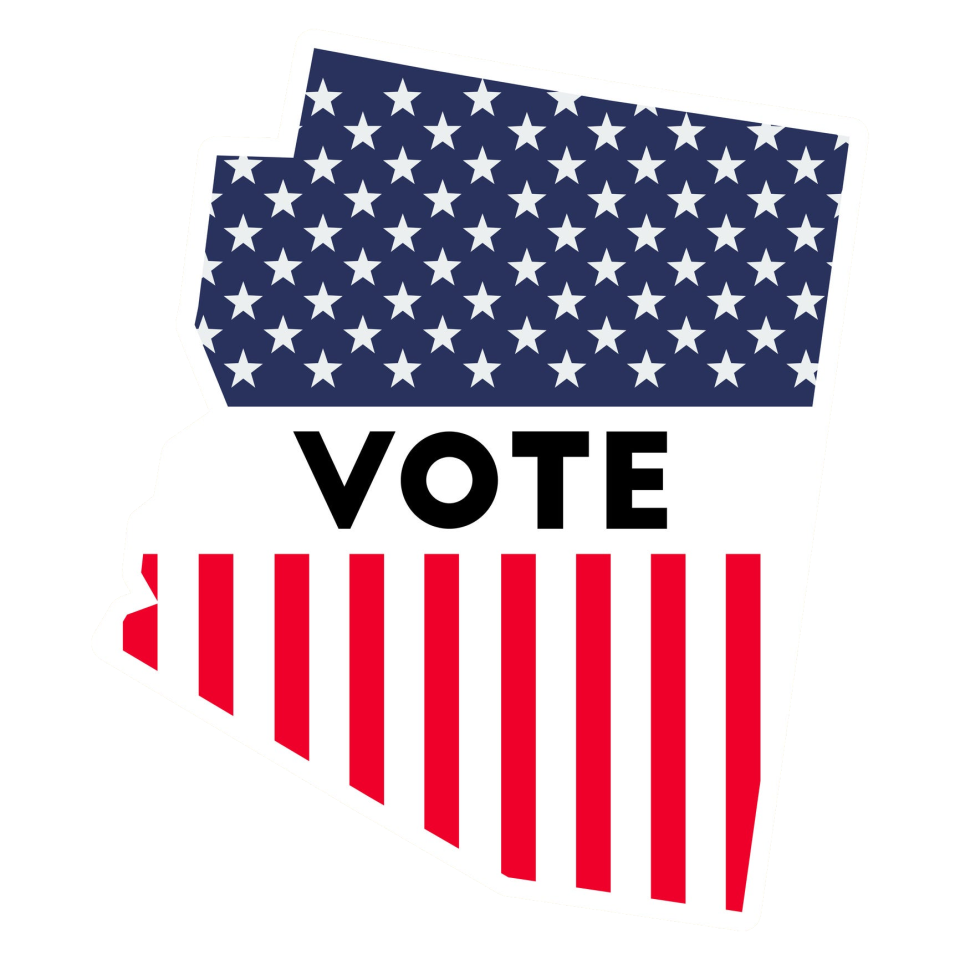Federal judge limits ballot drop box monitors' activities in Arizona
U.S. District Judge Michael Liburdi granted an emergency order from the bench Tuesday that bans Arizona's ballot drop box monitors affiliated with conservative group Clean Elections USA from taking photos of voters while they are within 75 feet of a ballot box.
The order also prohibits observers associated with the group, which has organized at least some of the drop box surveillance in the Phoenix area, from posting identifying images or information about voters online and making false statements about election law from now to the end of the voting period.
It comes days after Liburdi declined to stop ballot drop box monitors from gathering outside Arizona voting locations in a similar lawsuit filed by the Arizona Alliance for Retired Americans, a progressive grassroots organization that supports seniors' issues and Voto Latino, a nonprofit focused on getting out the young Latino vote.
He said that legal challenge, which is being appealed to the 9th U.S. Circuit Court of Appeals, requested an injunction that was too broad. He wrote in his decision on the case that he struggled to "craft a meaningful form of injunctive relief that does not violate Defendants’ First Amendment rights and those of the drop box observers."
This lawsuit, filed by Protect Democracy on behalf of the League of Women Voters of Arizona, requested a narrower injunction.
"We've heard evidence of individuals being harassed and intimidated," Liburdi said. "I think the evidence was much stronger in this case, and I think it justifies this narrowly tailored form of relief."
Voting rights groups celebrated the order, which will remain in effect for 14 days, as a win for Arizona voters.
“The brave voters who came forward today offered powerful testimony about the harm that voter intimidation wreaks on our democracy,” attorney Orion Danjuma said in a statement. “The court’s order today recognizes the importance of the federal laws that ensure voters’ ability to participate in democracy without fear, and strikes an appropriate balance between protecting voters from intimidation and not infringing First Amendment rights.”
Alexander Kolodin, an attorney for Oklahoma resident Melody Jennings, the founder of Clean Elections USA, said the prohibitions on filming voters will infringe on Jennings' and observers' First Amendment rights.
"We're very happy that the court did not shut down drop box monitoring," Kolodin said. "The thing that we can't have is the 75 foot filming limit. That's a huge First Amendment problem."
He declined to say whether Jennings intends to appeal Liburdi's decision.
Previously: Judge rejects emergency injunction in ballot drop box case
Background on the order
The legal wrangling comes after some voters dropping off early ballots at outside locations in downtown Phoenix and Mesa complained that groups of people were filming them and taking photos of their license plates. Some of the observers have touted the debunked film "2,000 Mules," which states without proof that widespread ballot harvesting occurred during the 2020 presidential election.
The situation has led Maricopa County Sheriff Paul Penzone to patrol around the outdoor drop boxes.
Liburdi's order also follows a statement of interest from the U.S. Department of Justice, which has received multiple voter intimidation complaints forwarded by the Arizona Secretary of State's Office and county election officials.
"Although lawful poll-watching activities can support democratic transparency and accountability, when private citizens form 'ballot security forces' and attempt to take over the State’s legitimate role of overseeing and policing elections, the risk of voter intimidation — and violating federal law — is significant," the statement read.
What else does the order say?
Liburdi's directions from the bench add components of an emergency order that both sides had already agreed to in fast-paced negotiating after a Monday status hearing.
Those provisions include that drop box observers with Clean Elections USA cannot enter within 75 feet of a ballot box or building containing one, follow voters to drop boxes or engage with voters returning ballots unless they are spoken to first.
Liburdi instructed Jennings to post on the Clean Elections USA website and her social media accounts that it is not always illegal to return multiple ballots at a drop box.
Arizona law allows a caregiver, family member, household member or election official to return a voter's ballot, including at drop boxes.
Libardi's orders also prevent monitors from openly wearing body armor or carrying guns within 250 feet of a drop box, although they will not be in breach of the order if body armor or weapons are concealed.
His order will not serve as an admission of illegal activity from Jennings or her associates, according to the terms he read aloud in court.

Election guide: November 2022
City races | School boards | State | Governor
| Ballot measures | Federal races | How to vote
Who will enforce the order?
Liburdi's order doesn't specify who will enforce its provisions.
Maricopa County election officials said it won't be them.
"We're in the business of elections, not in the business of moving people," said Recorder Stephen Richer.
It's unclear which law enforcement agency would enforce the order. The Maricopa County Sheriff's Office did not immediately respond to a request for comment.
Sasha Hupka covers Maricopa County and regional issues for The Arizona Republic with a focus on voting and democracy. Do you have a tip about elections or questions about voting? Reach her at [email protected]. Follow her on Twitter: @SashaHupka.
This article originally appeared on Arizona Republic: Federal judge in Arizona limits ballot drop box monitors' activities
